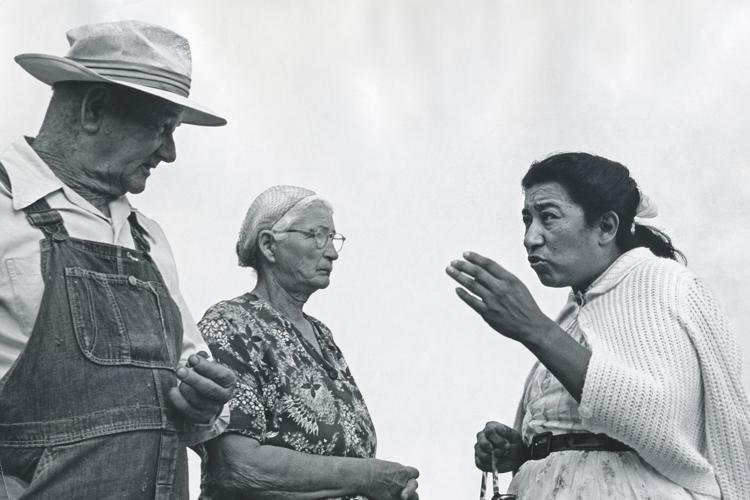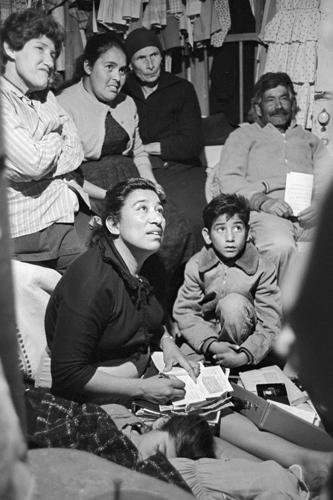ALBUQUERQUE — Years before Cesar Chavez and Dolores Huerta began organizing poor farmworkers in California, a woman named Maria Moreno sought to sign up impoverished farmworkers for a fledgling union. The Mexican-American mother of 12 coordinated rallies, recruited members in isolated areas and inspired others to demand a living wage.
By 1961, her work was so admired she was sent to a national union convention to address attendees that also heard from President John F. Kennedy and the Rev. Martin Luther King Jr.
Then Moreno disappeared from the public eye.
“Adios Amor: The Search for Maria Moreno” on PBS examines the life of the obscure labor leader who galvanized poor agricultural workers during the late 1950s and early 1960s. Moreno’s work helped set up a farmworkers movement that later would capture the nation’s heart, but her whereabouts later in life remained a mystery to those who encountered her.
Laurie Coyle, the film’s director and producer, said the idea for the project began after she found photos of Moreno tucked away in an archive. The images — captured by the late farmworker photographer George Ballis — showed Moreno speaking in front of crowds, organizing workers in the fields of California and racing to other events with her children and husband.
“She had this piercing glaze and always seemed to be surrounded by children,” Coyle said. “I couldn’t help to be captivated.”
With little information to go by, Coyle began investigating Moreno’s life and discovered radio journalist Ernest Lowe had followed Moreno during her activist days. He, too, had been enchanted by Moreno.
Born in Karnes City, Texas, to a Mexican immigrant father and a Mescalero Apache mother, Moreno and her family had been migrant farmworkers for years, following the crops in Utah, California, Arizona and Texas.
Coyle also found out that Moreno started her union activism following an April 1958 flood that forced many farmworkers into near starvation. One of her sons went blind temporarily due to starvation, reporters and family members said.
She became active in the Agricultural Workers Organizing Committee, a fledgling union sponsored by the AFL-CIO, gaining broad support from Oklahoma migrants, Filipino-American workers and Latino pickers.
But union infighting and jealously eventually forced her out in 1962.
She eventually became a Pentecostal minister along the U.S.-Mexico border in San Luis, Arizona, and sought to transform society one soul at a time instead of focusing on systemic change.
Moreno died in 1989, largely forgotten.
The film, a presentation of VOCES, premieres Friday on most PBS stations.





